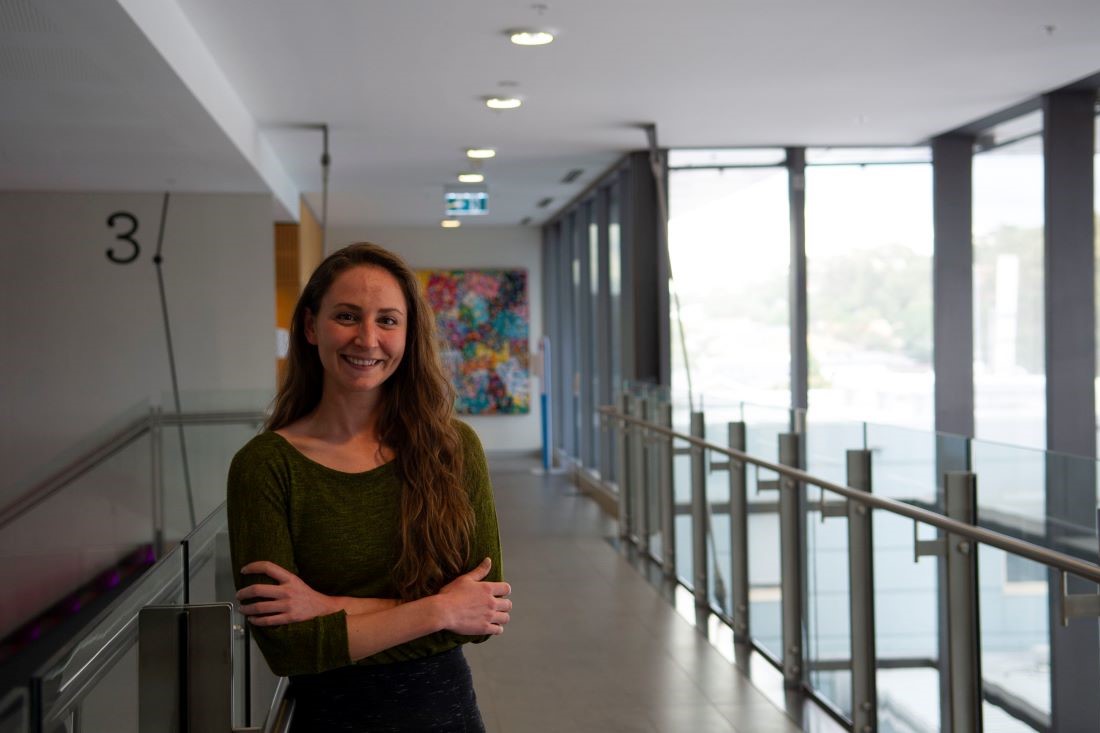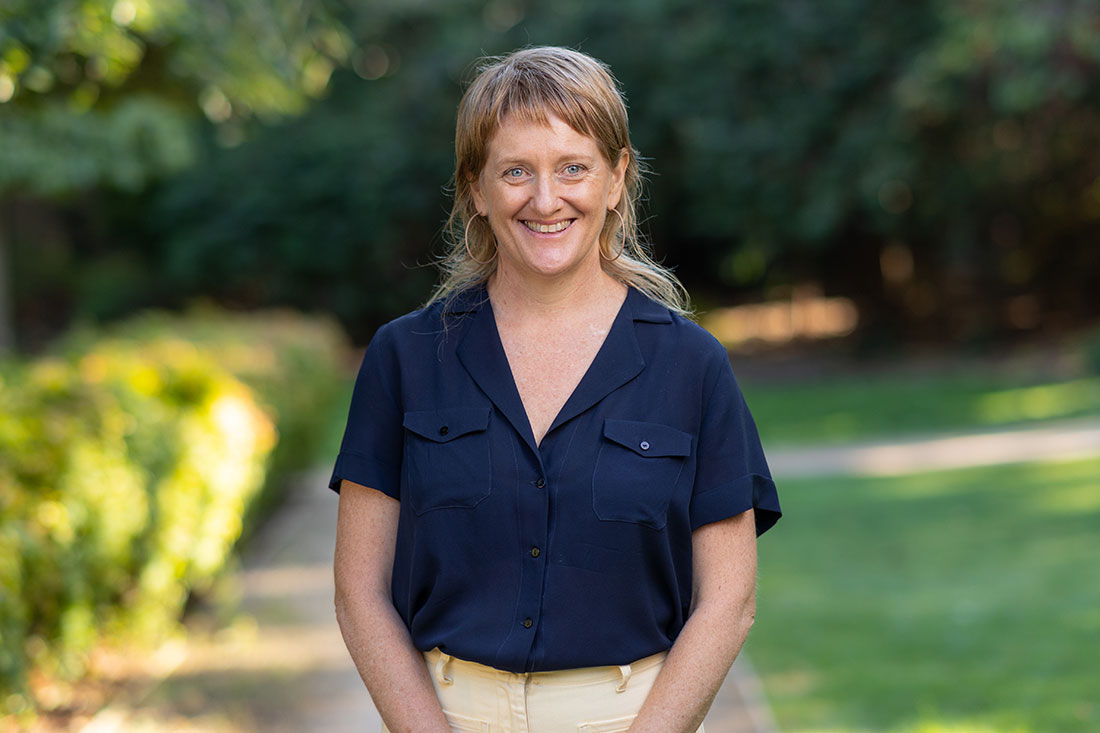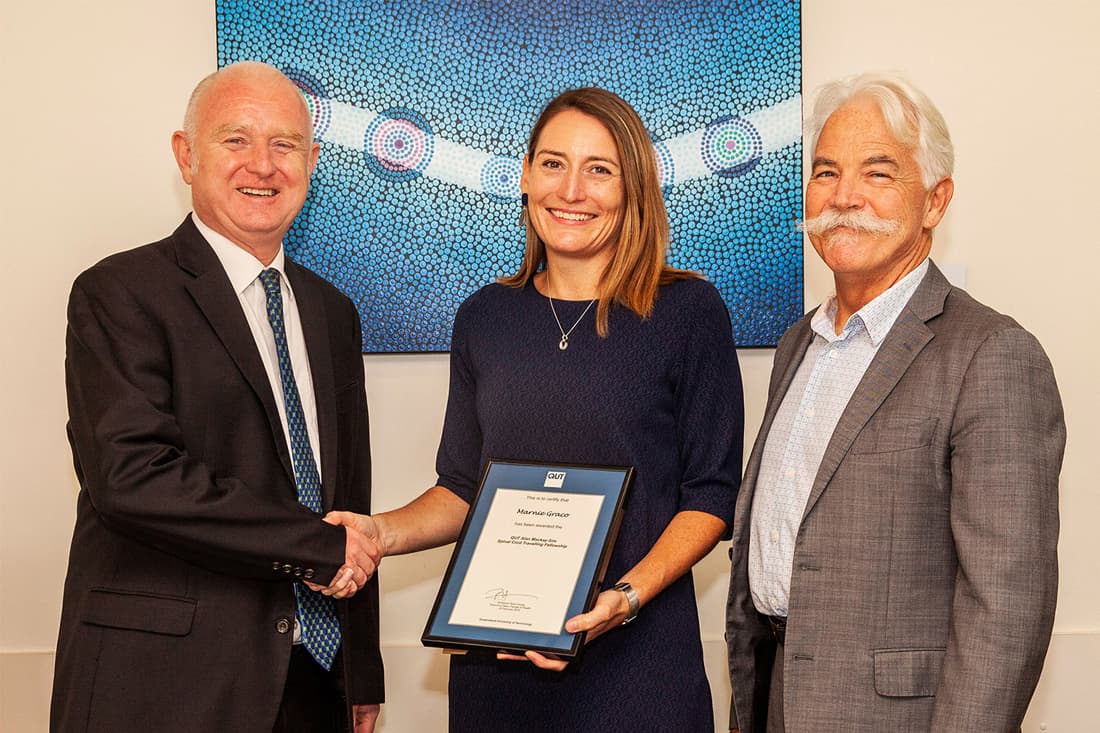About the fellowship
The Alan Mackay‐Sim Spinal Cord Injury Travelling Fellowship has been established to improve clinical outcomes and quality of life for people with a spinal cord injury (SCI). The fellowship will support projects that have an emphasis on clinical management, rehabilitation or social support for people with a SCI.
The fellowship is available to support projects that have an emphasis on clinical management, rehabilitation or social support for people with a spinal cord injury. Fellowships will fund overseas travel to centres of best practice for spinal cord injury to pursue a project that is not readily achievable in Australia.
Support for travel to benefit basic research on biological mechanisms, novel treatment strategies (e.g. clinical drug trials), etc. is specifically excluded.
The value of the fellowship will differ each year depending on the proposed study program. The maximum value of the fellowship is $35,000.
Fellowships are awarded annually.
The fellowship may not necessarily cover all expenses during the study program and you are encouraged to apply for supporting funds from external sources and from your own or the host institution.
Your home institution should fund your salary and some other costs (for example short or long professional development leave applications).
Eligibility criteria
You must be:
- an Australian citizen or permanent resident, from any Australian state or territory
- over the age of 18.
You don't need any specific qualifications, and we encourage applications from a range of disciplines, including:
- nursing
- physiotherapy
- occupational therapy
- social work
- psychology.
Download the Alan Mackay-Sim Travelling Fellowship guidelines (PDF file, 234.0 KB)
Assessment criteria
Assessment criteria may include:
- the need for this project in the management or rehabilitation of people with a SCI
- the benefits of the project to people with a SCI and their families
- the itinerary and places selected
- the necessity to travel overseas
- how achievable the project is
- your ability to maximise the opportunity
- your ability and commitment to widely disseminate findings
- your ability and commitment to implement changes in clinical practice
- your commitment to make a difference after your trip.
How to apply
Your application must include:
- a statement addressing the assessment criteria
- your personal details
- your proposed study tour itinerary and budget
- names of referees
- your CV
- a detailed statement outlining how the study tour will achieve the objectives of the fellowship and improve outcomes and quality of life for people with a SCI
Applications can be lodged by emailing health.engage@qut.edu.au
What happens next
The selection panel will assess your application and proposed project. The panel will be looking for:
- the quality of applicants
- the likelihood that the proposed study tour will have an impact on the clinical management of quality of life of people with a SCI.
You may be invited to attend an interview either in person, by phone or online. You'll be notified of the outcome of your application.
About Alan Mackay-Sim
2017 Australian of the Year Professor Emeritus Alan Mackay-Sim was a neuroscientist and stem cell scientist. His research career focused on how the sensory neurons in the nose are replaced and regenerated from stem cells. He was a world leader in spinal cord injury research.
Professor Emeritus Mackay-Sim established the National Centre for Adult Stem Cell Research in 2006. He developed an adult stem cell bank from over 300 people with different neurological conditions including schizophrenia, Parkinson’s disease, mitochondrial mutation disorders, hereditary spastic paraplegia, ataxia telangiectasia and motor neuron disease. These stem cells are used to identify the biological bases of neurological diseases using genomics, transcriptomics, proteomics and cell function assays and this work is leading to new drug therapies.
In 2017 Professor Emeritus Alan Mackay-Sim received the Distinguished Achievement award from Australasian Neuroscience Society and in 2018 he was awarded the Neil Hamilton Fairley Medal by the Royal Australasian College of Physicians and the Royal College of Physicians (Lond) for Outstanding Contribution to Medicine.
Previous recipients

Dr Annie Palermo
Dr Annie Palermo, 2024 Fellowship recipient, is a Research Fellow at Neuroscience Research Australia (NeuRA). She has clinical experience in acute care and has research experience in the field of SCI including work in respiratory function, seated balance, blood pressure control, and physio-based interventions after or in conjunction with cell-based and neuromodulatory therapies.
Through the Fellowship, Dr Palermo learned of different assessments and stimulation-based interventions that are being used at SCI clinical and research centres. She heard from allied health clinicians and clinical researchers in how these assessments and interventions help them to quantify and treat trunk muscles. She also gained insights into the perceptions held by SCI-professionals in how they feel trunk muscle function impacts more than just posture and seated balance; but the impact of trunk muscles reaches to breathing, bowel function, walking, and upper limb function as well. She looks forward to sharing these findings and practices with allied health clinicians across Australia through in person workshops and conferences.

Dr Leanne Rees
Dr Leanne Rees, 2023 Fellowship recipient, is a research officer with focus on Stem Cell Medicine and Stem Cell Ethics & Policy. She is a senior physiotherapist in spinal cord injury (SCI) rehabilitation, and completed her PhD investigating the representation, creation, and impact of spinal cord injury in Australian news media.
Dr Rees utilised the Fellowship opportunity to continue investigating how healthcare professionals navigate conversations of hope considering media portrayals of stem cell therapies. By visiting international organisations of best practice for SCI advocacy, Dr Rees was able to learn first-hand about the localised challenges and successful strategies engaged to communicate with clarity and compassion for those living with SCI. The findings from the Fellowship travel experience have offered Dr Rees a new and unique perspective to accelerate research and add value to longer-term implementation outcomes.

Dr Marnie Graco
Dr Marnie Graco, 2019 Fellowship recipient, is a post-doctoral clinician researcher and Implementation Scientist. She has a clinical background as a physiotherapist and holds a Master of Public Health and PhD (University of Melbourne 2019) which investigated the clinical management of sleep disordered breathing in people with tetraplegia.
Dr Graco harnessed the opportunity of the Fellowship to visit European and Canadian SCI centres to learn further about clinical management of obstructive sleep apnoea (OSA) in SCI rehabilitation. Dr Graco has since published research focused on improving health and quality of life of people living with neuromuscular diseases, by increasing the uptake of evidence-based treatments for sleep and breathing disorders.
Contact us
Contact us if you have questions about the Alan Mackay-Sim Spinal Cord Injury Travelling Fellowship.